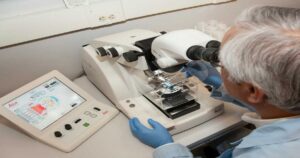Explore a curated collection of EHR books while discovering the potential of exploring electronic health records books, empowering individuals to navigate complexities and make informed decisions.
Electronic health records (EHRs) have revolutionized the healthcare industry, streamlining patient data management and transforming how medical information is accessed, stored, and shared. A carefully curated list of essential EHR books can be an invaluable resource for healthcare professionals looking to expand their knowledge and expertise in this rapidly-evolving field.
Explore these electronic health records books that deepen insights and help navigate the intricate world of healthcare:
1. Connected for Health
Editor: Louise L. Liang
‘Connected for Health: Using Electronic Health Records to Transform Care Delivery’ explores the implementation of the world’s most extensive non-governmental electronic health record system. The book delves into the far-reaching impact of this system on patient care outcomes, operational efficiency, safety, and patient engagement. Louise L. Liang draws upon valuable insights and lessons learned from the successful deployment strategy, showcasing how these technological tools are revolutionizing healthcare delivery and reshaping the organizational culture within the industry. This comprehensive resource sheds light on the transformative potential of electronic health records, offering a glimpse into the future of connected healthcare and its potential to improve patient experiences and drive positive change within healthcare organizations globally.
2. Hacking Healthcare
Authors: Fred Trotter and David Uhlman
‘Hacking Healthcare: A Guide to Standards, Workflows, and Meaningful Use’ is a concise and insightful book that critically evaluates the US healthcare system’s adoption of electronic health records (EHRs) and other IT solutions to meet the government’s meaningful use requirements. While acknowledging the tremendous opportunities for IT professionals, it also highlights the significant challenges of overhauling outdated record systems, workflows, and practices. EHR books, such as this one, provide a comprehensive overview by examining the unique characteristics of healthcare settings, exploring the complexities of transitioning from paper to digital records, analyzing billing and payment systems, emphasizing patient engagement through EHRs, and addressing the critical issue of avoidable errors.
3. The Innovator’s Prescription
Authors: Clayton M. Christensen, Jerome H. Grossman, and Jason Hwang
‘Innovator’s Prescription: A Disruptive Solution for Health Care’ presents a visionary prescription for reforming the ailing healthcare system. The book applies the principles of disruptive innovation to revolutionize the broken healthcare system. It identifies and addresses various symptoms, offering proven solutions that will improve the affordability and quality of healthcare. The book explores how precision medicine can reduce costs and deliver personalized care, how disruptive business models can enhance accessibility, affordability as well as quality, and how patient networks can improve the treatment of chronic diseases. Additionally, it highlights the need for employers to adapt their roles in EHRs to compete effectively in a globalized era.
4. The Guide to the Future of Medicine
Author: Bertalan Meskó
‘The Guide to the Future of Medicine (2022 Edition): Technology and The Human Touch’ is an insightful and authoritative book that examines the transformative power of electronic health records (EHRs) and other technological advancements in medicine and healthcare. The author comprehensively assesses how EHRs have revolutionized healthcare delivery, offering a roadmap to tomorrow’s potential. By exploring the integration of EHRs with emerging technologies and trends, such as exoskeletons, social media for medical information, and supercomputers in medical decision-making, EHR books like this one offer patients, medical professionals, and healthcare stakeholders an enlightening and fact-based perspective on how technology can shape and enhance their well-being while preserving the essential human touch.
5. The Digital Doctor
Author: Robert Wachter
‘The Digital Doctor: Hope, Hype, and Harm at the Dawn of Medicine’s Computer Age’ explore integrating electronic health records (EHRs) into healthcare. Driven by compelling stories and astute analysis, the book addresses the challenges and opportunities presented by technology in medicine. It raises pertinent questions about the impact of digital systems on patient care, highlighting concerns such as the loss of human connection and the occurrence of medical errors despite computerization. With clarity and compassion, the author emphasizes the need to understand the transformative nature of technology in healthcare and advocates for its proper implementation to ensure a harmonious relationship between humans and machines.
6. The Internet of Healthy Things
Authors: Joseph C. Kvedar, Carol Colman, and Gina Cella
‘The Internet of Healthy Things’ explores the profound impact of IoT on healthcare, with a particular emphasis on electronic health records (EHRs). This integrated electronic health records book delves into the transformative potential of real-time biometric data in understanding the relationship between lifestyle and chronic diseases. The authors describe the driving forces behind this trend and unveil the business opportunities it presents for various sectors, including payers, providers, pharmaceutical and biotech companies, technology vendors, and innovative newcomers. The book provides insights into consumer behavior, strategies for designing compelling health devices and platforms, exploration of novel form factors for health information delivery, strategic guidance for startups and entrepreneurs entering the connected health market, and interviews with industry leaders and innovators.
7. Electronic Health Records
Author: Jerome H. Carter
The second edition of ‘Electronic Health Records: A Guide for Clinicians and Administrators’ offers medical professionals and administrators a comprehensive grasp of the functionality and significance of electronic health records (EHRs). The book addresses the numerous inquiries when assessing, procuring, and utilizing an EHR system. It is a valuable resource for individuals who remain undecided about investing in an EHR system or seek a comprehensive and up-to-date understanding of the growth potential and associated challenges of EHRs. The book offers insightful guidance and effectively combines written explanations with visual aids such as figures and tables. It is an exceptional resource for introductory courses on healthcare systems.
8. Ensuring the Integrity of Electronic Health Records: The Best Practices for E-records Compliance
Author: Orlando López
‘Ensuring the Integrity of Electronic Health Records: The Best Practices for E-records Compliance’ is a comprehensive guide that emphasizes the crucial role of data integrity in the design, implementation, and utilization of systems handling electronic health records (EHRs). The book highlights the importance of recording data accurately and ensuring its consistency throughout its lifecycle. Providing practical insights and up-to-date information enables a better understanding of the controls necessary for maintaining compliance with EHR regulations. With a specific focus on production and quality control systems in the pharmaceutical and medical device industries, the book addresses the suitability of EHR implementation, risk-assessed controls, and proper handling of EHRs, ultimately emphasizing the criticality of data integrity in ensuring patient safety and regulatory compliance.
9. Electronic Health Records
Author: Richard W. Gartee
‘Electronic Health Records: Understanding and Using Computerized Medical Records’ is an instructional resource for Health Information Management and Health Information Technology programs. Written by Gartee, this electronic health records educational book effectively utilizes EHR in medical practice through practical exercises and activities. Suitable for various educational institutions, the book includes a Student CD with networking capabilities. The ‘Medcin Software’, integrated into the instructors’ manual, enhances learning with its multi-user functionality and widespread use in EHR systems. This comprehensive resource prepares students to apply their skills in real-world EHR applications.
10. Electronic Health Records and Medical Big Data
Author: Sharona Hoffman
‘Electronic Health Records and Medical Big Data: Law and Policy’ is a comprehensive book that offers a profound understanding of electronic health record (EHR) systems, medical big data, and the regulatory landscape governing them. It is a valuable resource for students and professionals alike, providing interdisciplinary analysis and insights. The book explores the impact of EHR systems on clinical care and the generation of medical big data, examining their benefits, drawbacks, and the legal framework surrounding their use. It addresses various challenges, including privacy, security, data quality, and analysis. With detailed recommendations for regulatory, policy, and technological improvements, the book emphasizes the vital role of the law in safeguarding and enhancing EHR systems and the medical big data derived from them. Its structure comprises two main parts, focusing on EHR systems in clinical settings and the utilization of medical big data for research and non-clinical purposes.
Final Chapter
This curated list of engaging electronic health records books serves as an essential read for patients, providers, and C-suite executives alike. These EHR books not only unravel the intricacies of the digital age but also provide valuable insights into the evolving healthcare industry. For healthcare professionals, these resources offer a deeper understanding of EHR implementation, usability, and the legal considerations surrounding them. Additionally, professionals can leverage the knowledge gained from these electronic health records educational books to navigate the complexities of integrating EHR systems within their organizations, driving strategic decision-making, and ensuring the delivery of effective and compassionate healthcare services. By embracing the transformative potential of these EHR books, informed by the wisdom shared within them, healthcare leaders can forge a path toward a more efficient, patient-centered, and technologically-advanced healthcare system.



